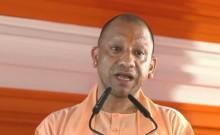Protests took place, on 19 October, in cities around the world to campaign against alleged demolitions and forced evictions carried out by Chinese authorities in the Tibetan Buddhist community of Larung Gar.
Larung Gar is a town in the Sichuan province mostly inhabited by monks and nuns. Founded in 1980, the community is primarily focused on the study of Tibetan Buddhism – one of the largest such communities in the world.
Chinese authorities are said to be attempting to slash the population to 5,000 inhabitants within the next year, with campaign groups saying demolitions and forced removals started in July and continue today.
A statement from the Chinese Embassy in London to IBTimes UK disputed the claims as rumours spread by those people and organisations who are seeking separatist activities in the disguise of religion.
It is common international practice to administrate religious sites in accordance with law. The statement said local authorities were managing sites to provide better public and social services and eliminate risks.
Organisers at Wednesdays protest outside the Chinese Embassy in London said what [China] are doing in Tibet is not common practice. There are very few other countries... that impose the same level of restriction and interference on religious matters.
Force removals and demolitions: Whats happening in Larung Gar?
As part of the day of action, 180 Tibet groups released a joint statement saying they are gravely concerned with the situation in Larung Gar – asking the UN High Commissioner for Human Rights to call on China to halt the ongoing demolitions and removals at Larung Gar and push for a visit to China including unfettered access to Tibet.
Kunsang Dolma, campaign coordinator for the Tibetan Community in the UK, told IBTimes UK that 600 homes had already been demolished and around 1,200 monks and nuns had been evicted. Dolma said that the situation on the ground had become so distressing that three nuns had committed suicide in protest.
Demonstrations took place in cities in India, Australia, the US and others, alongside the London protest.
When asked about the future for Tibet, Eleanor Byrne-Rosengren, director of the campaign group Free Tibet, said they needed people to get behind Tibet more than ever.
Theres a lot of surveillance, theres very little public space for resistance, China is cracking down on every expression of dissent... we need public support... but ultimately, no regime last forever.
IBTimes UKs full live reporting from the London protest can be viewed here.










